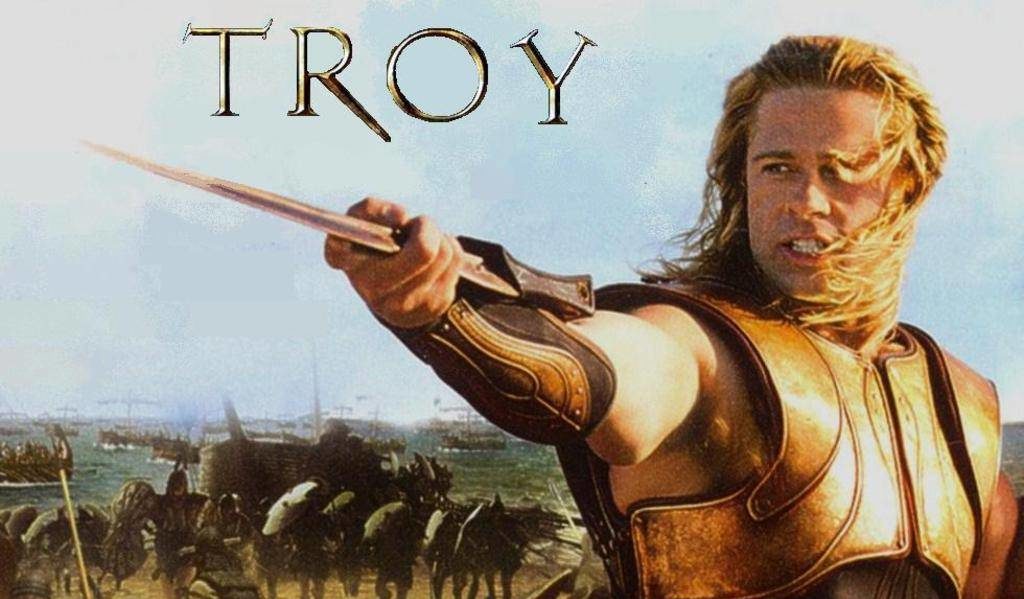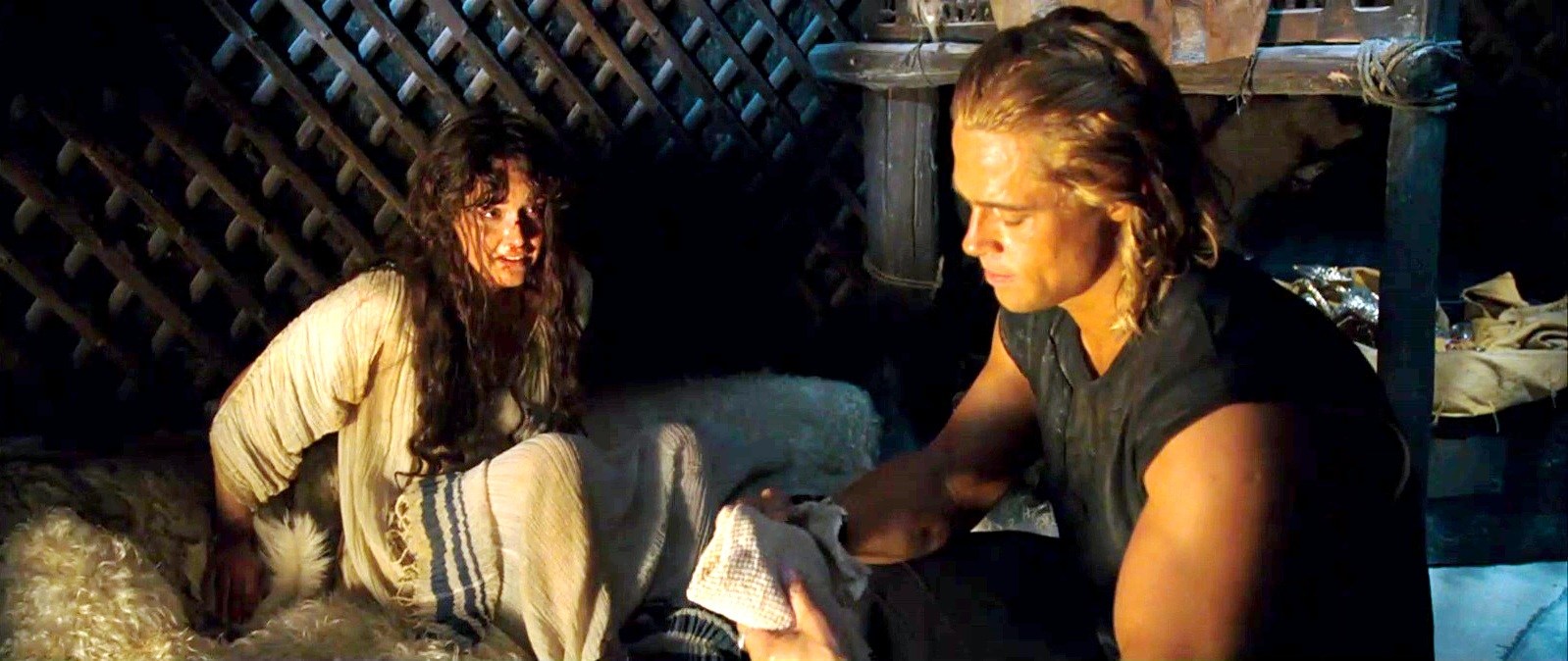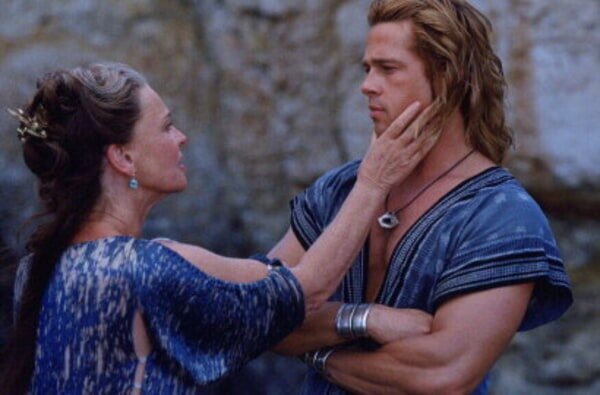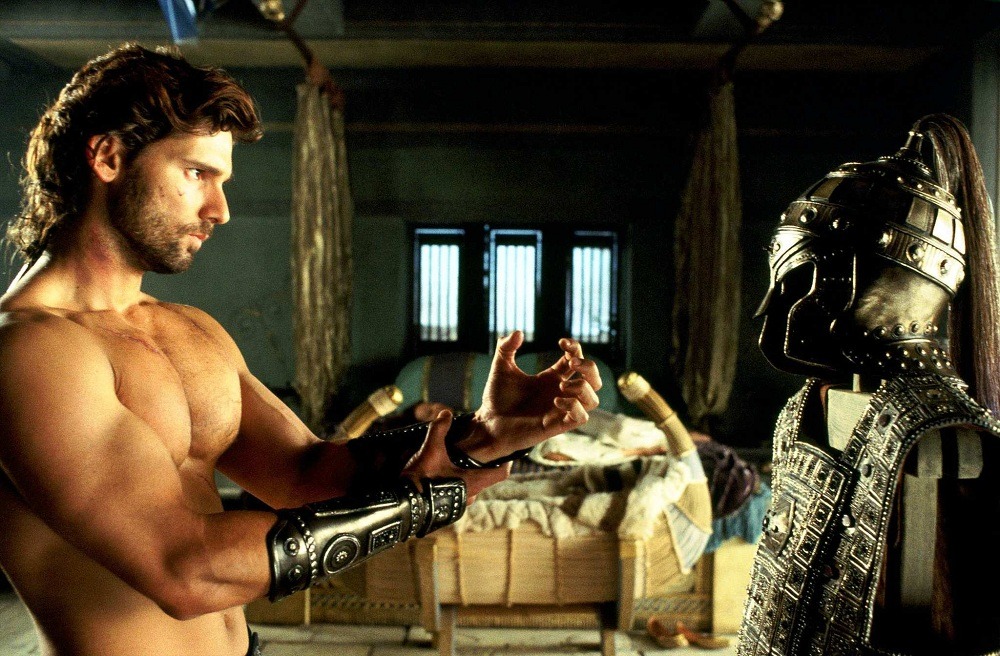Troy (2004)

Troy (2004) is an epic historical war film directed by Wolfgang Petersen and based on the ancient Greek epic Iliad by Homer. Written by David Benioff, the film takes inspiration from the legendary Trojan War, bringing to life the clash of great heroes, gods, and civilizations. With its grand scale, intense battles, and complex characters, Troy explores the themes of honor, love, betrayal, and the destructive nature of war.
The film follows the events leading up to and during the Trojan War. The conflict begins when Paris (Orlando Bloom), a prince of Troy, elopes with Helen (Diane Kruger), the queen of Sparta, causing a war between the Greeks and the Trojans. The Greek forces, led by King Agamemnon (Brian Cox), assemble a massive army to invade Troy. Among the Greek warriors, Achilles (Brad Pitt) stands out for his unmatched combat skills and his personal conflict with the war’s purpose. As the battle rages on, the fates of the key players, including Hector (Eric Bana) of Troy and Achilles, intertwine in a tragic series of events.
One of the central themes in Troy is the concept of honor and the way it drives the actions of the characters. Achilles’ desire for personal glory and recognition leads him to challenge authority and question the reasons behind the war. Hector, on the other hand, represents duty and familial love, fighting to protect his city and family. The film also delves into the destructive nature of war, showing how it consumes entire civilizations, and the personal sacrifices made by both sides. Through the lens of these iconic figures, Troy examines the blurred line between heroism and hubris.

The characters in Troy are complex, with motivations that extend beyond the surface of the epic war. Achilles, played by Brad Pitt, is portrayed as a brilliant warrior with a deep internal struggle, torn between his desire for immortality and his humanity. Hector, portrayed by Eric Bana, is shown as a noble and tragic hero who sacrifices everything for his city and family. The film also explores the role of women, such as Helen and Briseis (Rose Byrne), whose lives are profoundly affected by the men’s actions. These multifaceted characters add emotional depth to the film, making the epic battle feel more personal and relatable.

Wolfgang Petersen’s direction in Troy brings a sense of realism and grandeur to the ancient world. The battle scenes are vast and meticulously choreographed, with sweeping shots that capture the scale and chaos of war. The film’s cinematography, designed by Roger Pratt, uses a mix of wide shots of the battlefield and intimate close-ups of the characters to emphasize both the epic scale of the war and the personal stakes involved. The depiction of Troy’s towering walls, the Greek ships, and the battle sequences make the film visually stunning, immersing the audience in the brutal reality of ancient warfare.

In conclusion, Troy is a visually captivating and emotionally charged film that brings Homer’s ancient epic to the big screen with a modern sensibility. Through its strong performances, particularly by Brad Pitt and Eric Bana, the film delves into timeless themes of war, honor, love, and sacrifice. While it takes some creative liberties with the source material, Troy remains a powerful exploration of the human experience amidst the backdrop of one of the greatest wars in history. The film stands as a testament to the enduring power of ancient myths and their relevance to contemporary audiences.











